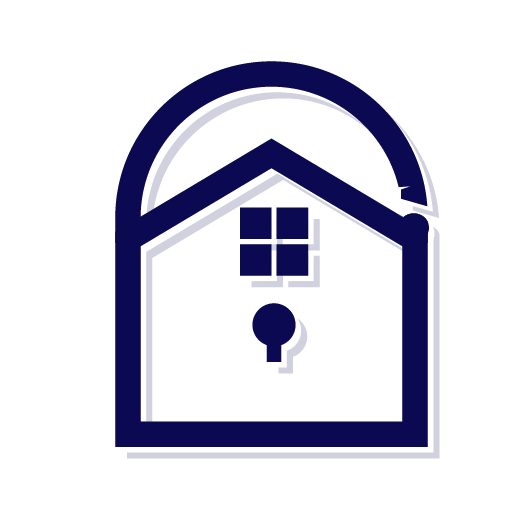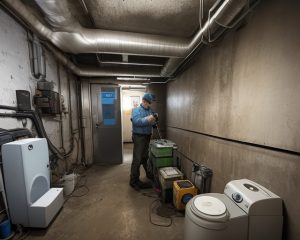Good air quality inside a home is essential for the healthy functioning of the mind and body. It ensures the health and wellbeing of your family by controlling air pollutants.

The air pollutants like carbon monoxide and radon make it difficult to breathe and cause adverse health effects. Therefore, it is essential to maintain good air quality inside your home to ensure a healthy environment. Continue reading to find some valuable tips in this regard.
Consequences of Indoor Air Pollution:
Indoor air pollution occurs when certain air pollutants like volatile organic compounds contaminate the air of indoor areas. Poor home air quality leads to a variety of illnesses, diseases, and conditions, like:
- Lung cancer.
- Respiratory diseases.
- Asbestosis.
- Asthma symptoms.
- Flu or throat irritation.
- Anemia.
- Skin irritation.
- Allergic reactions, etc.
Tips for Improving Air Quality Inside Your Home
At times, indoor air quality becomes more hazardous than in outdoor areas. The EPA estimates that the air pollutants inside homes are 2-5 times more concentrated than those outdoors.
Clean air is vital for survival, and it saves you from several illnesses. If you are struggling to enhance air quality inside your home, this article can help. Here are some best and easy ways to improve air quality inside your home. So, let’s get started.
1. Control Humidity
Scientific studies state that the humidity level inside a home should ideally range between 40-60%. This range helps eliminate viruses in the air that otherwise cause respiratory problems and allergic reactions.
It is imperative to control humidity inside a home; otherwise, inside air will turn too heavy with moisture. Resultantly, your home might become a breeding ground for bacterial growth, allergens, or dust mites.
Sometimes, it is crucial to test the humidity level inside your home when you do not see any apparent symptoms. For this, you’ll require 2-3 ice cubes in a glass. Add some water, stir it, and check after 3-4 minutes.
If you see enough moisture formed on the outside of the glass, it means the humidity level is high. It would be best if you controlled high humidity to save your belongings. If you see no moisture on the glass, a humidifier can help maintain an optimal humidity level.
2. Control Kitchen Pollutants
Many indoor air pollutants like, nitrogen dioxide and carbon monoxide emanate from the kitchen. The gas stoves or electric burners produce harmful contaminants inside the air unclean.
Therefore, it is essential to use cooking vents whenever you are cooking to save your home against these harmful pollutants.
Also, open your kitchen window to filter out toxic elements from your environment. You can also reduce poisonous emissions in your kitchen by following these techniques:
- Improve kitchen ventilation by using range hoods properly.
- Minimize grease in the kitchen with the help of a splatter screen. It will significantly reduce airborne and breathable particles and keep the environment toxic-free.
- Operate your kitchen fans effectively to aid air purification.
- Buy an air purifier to remove multiple chemical sensitivities in your cook place.
3. Improve Ventilation
Proper ventilation inside a home makes it safe, healthy, and energy-efficient. Ventilation helps your home eliminate cooking odors, smoke, moisture, and indoor pollutants.
Structural ventilation keeps water out of uninsulated walls and controls heat levels in the attic. Here are some wise tips by which you can improve ventilation in your home to attain better air quality.
- Run exhaust fans while using the kitchen or bathroom. It will keep the moisture out of your home and minimize the fumes emanating from the stove or oven.
- Filter your indoor air and, if possible, also replace your air filter.
- Maintain an optimal humidity level to improve air inside your home.
- Open windows to increase ventilation in your home.
4. Change your AC Filter
Air conditioning systems give perfect temperatures throughout the year, but in doing so, they are also filtering out some common air pollutants. Moreover, it can wear down your AC system, which comes across many repairing costs.
So, it is good to change your AC filter regularly. Or instead, you can also try out an air conditioning service plan for better results.
5. Cleanliness Is Important
Cleanliness is essential to discard unwanted particles that disrupt indoor air quality. Ensure that your rugs and carpets do not attract any airborne pollutants and are regularly cleaned.
Also, maintain a healthy and clean environment inside your home for the best results. For instance:
- Clean up spills.
- Take out the trash.
- Change towels and bedsheets frequently.
- Clean bathroom mirrors.
- Wipe down stovetops or fronts of appliances.
- Encourage a dust-free environment.
- Keep your bathroom dry.
- Clean your windows, etc.
FAQs:
Indoor air quality is affected by various factors, namely, poor ventilation, lead paint, radon gas, smoke, excess moisture, air fresheners or scent, allergens, bacterial growth, volatile organic compounds, etc.
The factors responsible for poor home air quality make it difficult to breathe and disrupt the home’s internal environment.
Not every home requires a test for its air quality. It’s because every home is different and located in a different setting.
However, a general test for gauging home air quality should begin by installing an indoor monitor. Then, apply mold tests and radon tests to know the condition of your home. Finally, installing a carbon monoxide detector in your home safety plan is best.
Try out these simple steps to reduce indoor air pollutants. Avoid smoking at every cost. Make sure your gas stove is well-ventilated and use cooking vents.
Minimize clutter in your home and remove carpeting, if possible. Make sure that you have sufficient ventilation inside your home. Also, control humidity to ensure the safety of your belongings.
Maintaining good home air quality requires diligence and preventative steps. Now you have learned ways to improve air quality inside a home, do not forget to implement it accordingly. Why not save yourself and your family from the consequences of poor home air quality and enjoy a comfortable life instead?



